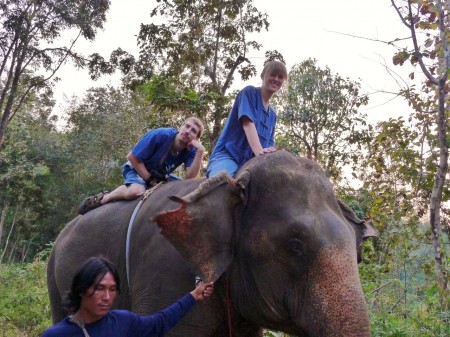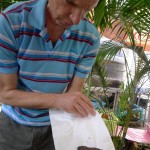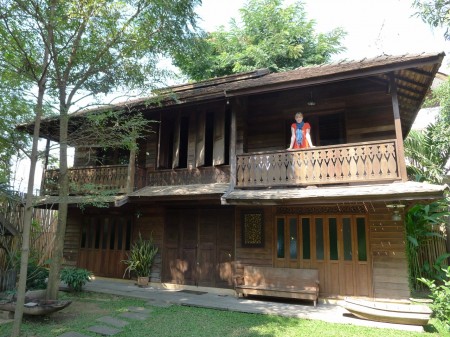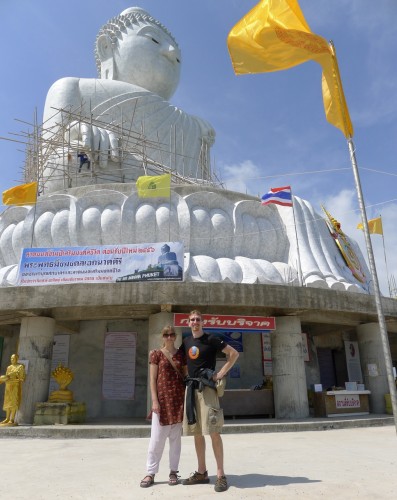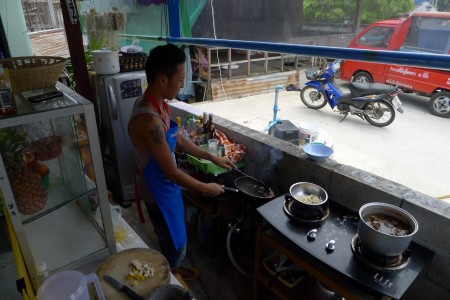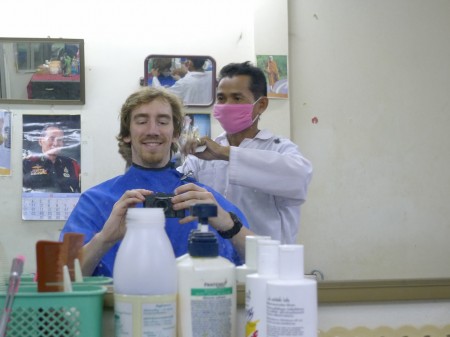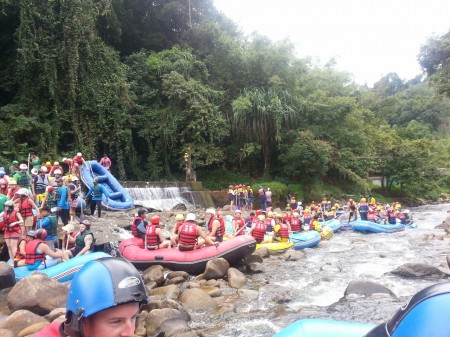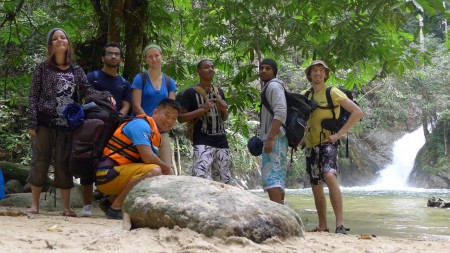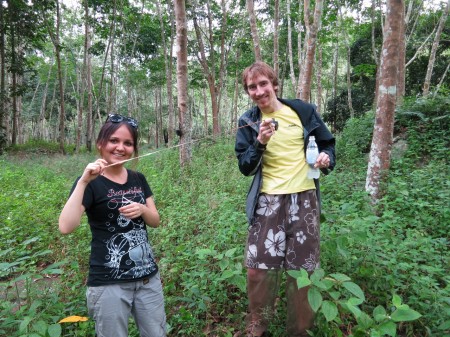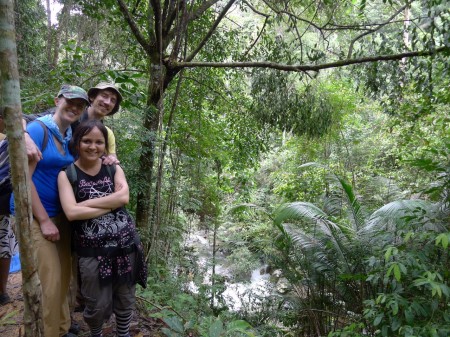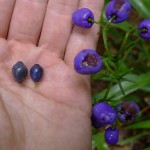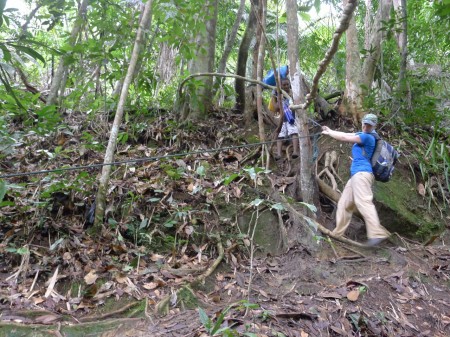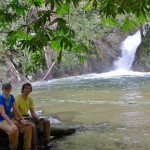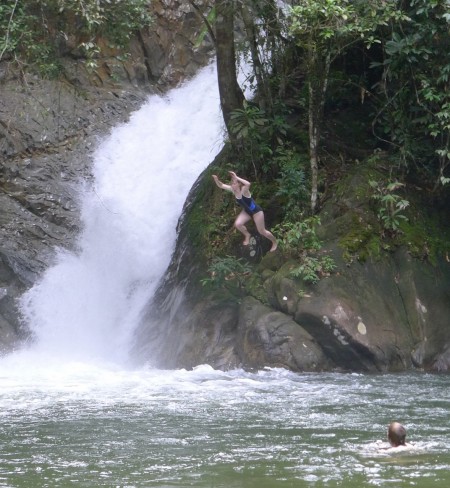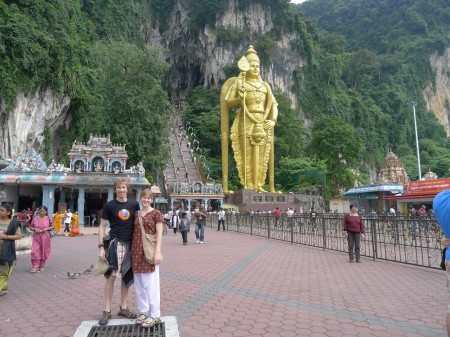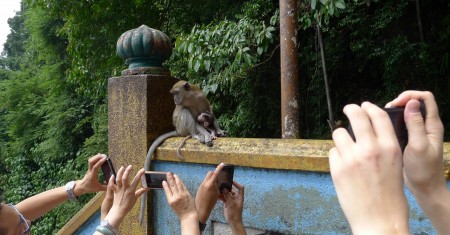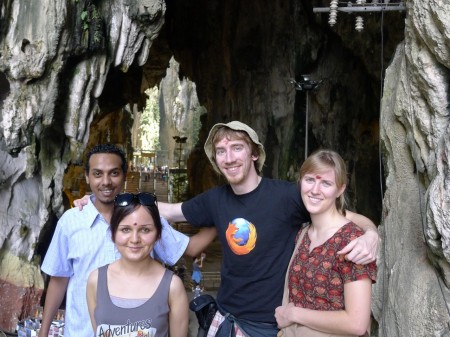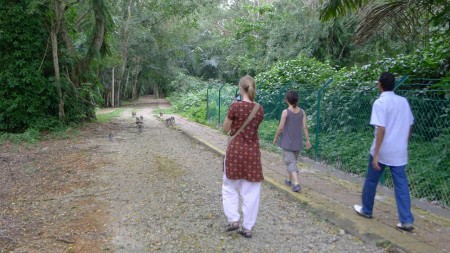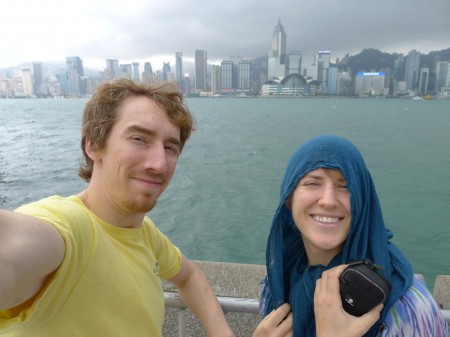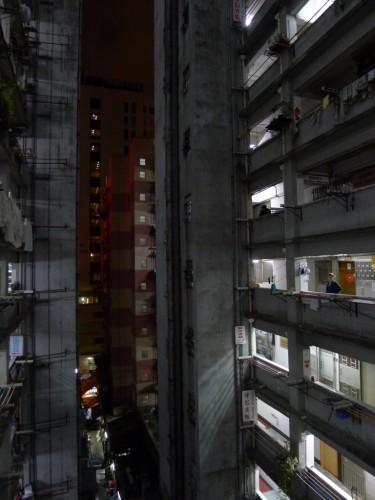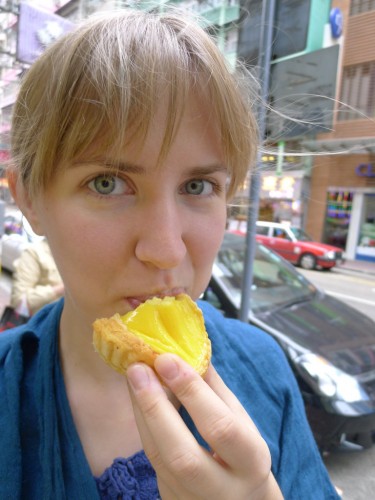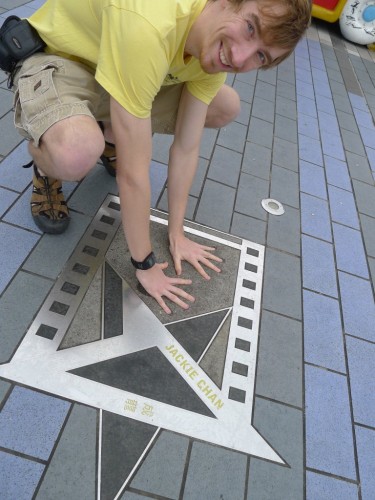Oh the importance of the comma. These past couple days have continued the relaxation binge we’d began in Phuket – we’re more than content now to be carried luxuriously from destination to destination by various groups now, instead of driving! After arriving late in the evening at the Aoi Garden Home in central Chiang Mai, we enjoyed their cozy room, but not so comfortable apparently rock-filled mattresses only briefly before beginning a cross-town hike to our luxurious lodgings at the Tanita Guest House.
On the way, we stopped for directions (and for the free wifi) advertised at the Vegetarian Restaurant of Chiang Mai, a restaurant owned and managed by an affable chap from England named Ray. I enjoyed my vegetarian pad thai (easy to make, just leave out the chicken or prawns I guess) but Christine was more iffy on her plate of what appeared to be straw, or at least hay. Ray called out “ehya guys, lookit thisear toad I found next to the loo!” (seriously, his accent was quite thick and difficult for us Yanks to understand). “Thinkee’s alive?” he asked with some concern as he brought the toad to our table on a napkin. “Still soft…but poor bloke isn’t budgin'” he then reported sorrowfully when he set him into a small pond near us. “Sorry chap, inta the bin with you.” Good choice for breakfast conversation.
The Tanita House was a beautiful example of old Thai-style architecture, and Christine and I had an entire small house all to ourselves for $80, complete with three bathrooms, a dining room, a sitting room, and two bedrooms with queen-sized beds and balconies. Very luxurious. They also gave us a whole six pack of bottled water in the fridge downstairs, which we didn’t need and we instead distributed it out to beggars out on the street; it was a hot day. We spent the morning just walking the streets and eating, while hunting for Aeon Bank ATMs all the while, of course (still trying to avoid that $5 surcharge!). No luck finding that, but plenty of good food was had.
We had arranged an afternoon trip to the Baan Chang Elephant Sanctuary, so we were picked up around 3PM from Tanita by a private bus and driven out deep into the countryside to meet our guide and mahouts. Tan, the guide, was very businesslike and professional – he immediately had us change out of our street clothes and into blue jumpers, telling us that “by the time you’re done riding and cleaning the elephants, you would not want to smell yourselves anymore!” I believed them; the elephants out in the field a hundred meters from us were already creating a distinct perfume that permeated the air. We crossed the road and went over to them, resplendent in our blue duds, with Tan enlisting myself and a few other men to carry a couple heavy baskets filled with sugarcane and small bananas.
The elephants knew what that meant, and looked over at us expectantly, pulling gently on the chains they had tethering their feet to the ground. Each elephant had a young, dark-skinned man standing next to it, or in some cases, playfully lounging out the elephant’s back. Christine and a few other women were a bit keen to ask questions about the leg chains, as well as the metal spiked sticks that the Cambodian mahout trainers each carried. Tan drew himself up a little bit and responded a bit defensively, telling us that we needed to remember that these were not ‘pet’ elephants, nor tame elephants – this was an elephant rescue sanctuary, so all the elephants we were seeing were from bad backgrounds or cruel owners, and Ban Chaang purchases them for thousands of USD in order to give them a bit of a better life. Many of them are violent to other elephants, so they have to be restrained to prevent them from beating each other up.
Tan informed us that there were some companies that will tell tourists they don’t use the hookstick on elephants. “That might be true, but then they are hiding a spike in their palm or wrist to control the elephant, to make you think that they are different from other organizations. An elephant is not like a dog or cat or a pet; they learn that the stick stings so they will behave themselves. We only use them if we absolutely have to, but normally, showing hookstick to elephant is enough to make elephant behave.”
The elephants were oblivious to this and continued to happily stuff their faces with the food we were providing them, suggestively hooking their trunks and pointed into their open mouths. “Always put the sugar cane in sideways, not longways,” Tan instructed. “Otherwise it could get caught in their throat.” As for the bananas though, we really could just actually place it right into the elephants’ mouths – they seemed quite content, and one elephant with a set of clappers around his neck was even more content.
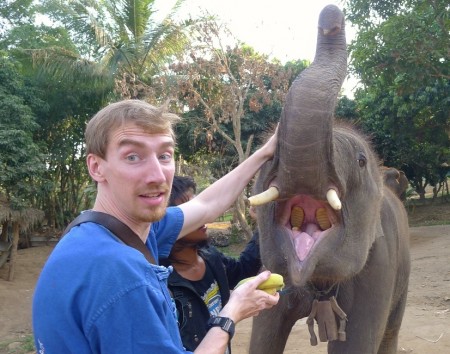
I’d never really imagined what elephant teeth looked like…as it turns out, they’re pretty different from ours!
His mahout grinned at Christine and I, and crooked his finger at us to come up right next to the necklaced elephant. The mahout called something then, and immediately a long trunk snaked around my shoulders, coiled around my neck, and kissed me on the neck with a loud sucking noise. “He’s a special case,” said Tan with a smile, watching us. “He is the only really tame elephant here; we purchased him when very young so we taught him a lot of things, and we even let him run free in the woods at night because he doesn’t damage the fences or farmers’ crops the way the others might. He wears the necklace so that we can hear him coming and going.”
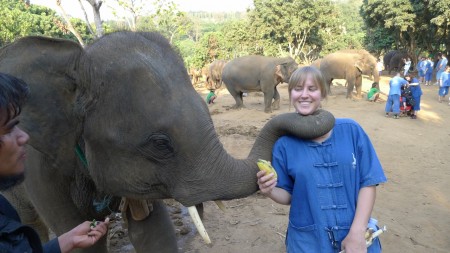
The tame elephant gives Christine a squeeze – this would probably not be covered by travel insurance!
After our baskets were empty. Tan gave us each some riding lessons on the elephants – unlike at the cheap tourist attraction in Phuket a few days ago, we would be riding bareback, so we learned some calls to get our elephants to kneel to allow a rider on and off, to go, to stop, and to turn left or ride. Bai, meaning go, would be the one I would be using a lot. However, I also wanted to ask Tan the most important command that he didn’t mention – how to congratulate our elephant for something. Tan reached up to the elephant that Christine and I were sharing and patted the knobby forehead, hard, and rubbed the spiky hairs vigorously. “You touch here, very hard, otherwise he cannot feel it. Then you say Deeeeee…deeeeee! It means, Good, good!”
